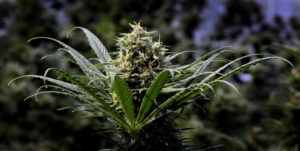Washington’s cannabis industry unveils legislative agenda

TACOMA — Members of the state Legislature, if you’re curious about what you can do for the local cannabis industry, the industry has some ideas.
Vicki Christophersen, executive director and lobbyist for the Washington CannaBusiness Association, recently briefed the media on the group’s legislative agenda for the coming session.
“We feel this is a pivotal year,” she told reporters on the call Dec. 5. In the years since legalization, “we’ve learned a lot, and we’re take this comprehensive agenda to the Legislature.”
The highlights:
• Compliance reform: Seeking a compliance program from the state Liquor and Cannabis Board so licensees can request assistance and inspections to find flaws in their systems without threat of citation. This could include written warnings before any enforcement action, provided there is no risk to health or public safety.
The group also seeks a finding that administrative violations that occurred before June 30, 2018, not count toward permanent license cancellation.
• Clarifying what is and is not a medical claim about a product: Getting rid of “curative” language (unsubstantiated claims about a product curing cancer, Crohn’s disease, etc.) has led to product descriptions being too limited, from the association’s standpoint.
According to its policy briefing memo, the association will propose legislation that “mirrors FDA (federal Food and Drug Administration) allowances to clarify what is and is not a ‘medical health claim’ to allow product labels to include such terms as, and derivatives of, wellness, maintain, support, assist, promote, and relief.”
“Licensees can’t use language or explain functionality to indicate what a product is used for,” Christophersen said. “Licensees should be able to identify functional claims in name or description of a product.”
• Allowing for out-of-state investment: According to the association, “Investment in Washington-licensed businesses has been restricted to only Washington residents, a barrier that does not exist in any other state-regulated cannabis marketplace.”
The group hopes legislation will eliminate that restriction.
“This industry is rapidly becoming a global industry,” Christophersen said.”Our fear as an organization is that Washington is going to be far behind.
“Imagine if the tech sector was strapped by those restrictions — we wouldn’t be a leader globally. We understand why (the restriction) was set up like that at the outset to encourage Washington entrepreneurs. But now they need to compete with the rest of the world.”
• Aligning cannabis sales penalties with alcohol industry standards: “A uniform approach to enforcing existing laws for alcohol, expanded to include cannabis, makes sense without undermining any safety measures intended to protect kids,” the association memo states.
“Budtenders now face a felony charge selling to a minor, but we feel that felony is too strong,” Christophersen said, adding that the association proposes changing the offense to a misdemeanor from a felony.
• Limited merchandising and sale of certain non-THC products in licensed retail stores: This would broaden store sales to include “limited merchandising in retail establishments in the form of branded clothing, cleaning products and CBD-only (cannabidiol-only) products.”
The policy change would allow cannabis shops to sell low-THC, CBD products you now can find at chain drug stores and independent retailers.
“Right now our folks can’t compete,” Christophersen said.
The handful of CBD products state-regulated stores sell are manufactured through the state Initiative 502-regulated industry. The supply is smaller than what’s available in the general marketplace or online.
